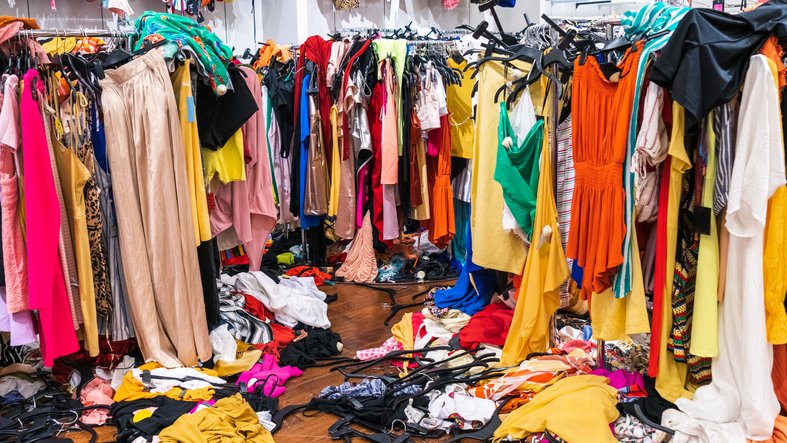This article first appeared in our Organic September issue of My Green Pod Magazine, published 08 September 2023. Click here to subscribe to our digital edition and get each issue delivered straight to your inbox
Earlier this year, the EU overwhelmingly voted in favour of ending fast fashion in a move that stood in sharp contrast to the notorious neglect we have seen from legislators and officials over the last few years.
Governance in the fashion industry has fallen behind; as a result, we have watched an abused industry accelerate to the bottom, exploiting people and the planet while changing our approach to the way we dress every day.
But this news from the EU has the potential to shift the industry in a more positive direction.
The proposed measures would essentially take away all the tools fast fashion brands use to operate the way they do.
Climate targets will be measured and quantified and there will be tougher restrictions on the use of hazardous chemicals.
Brands will be required to consider biodiversity and animal welfare and, central to all this, fast fashion will come under the microscope for its labour abuses and purchasing practices.
This means the exploitation of garment makers and the price manipulation on suppliers will no longer wash.
The changes will eat into key areas where manufacturers’ margins lie, and shake the very foundations of impossibly cheap clothing.
Backing up green claims
Over a month earlier this year, Boohoo twice requested price reductions on orders. Its suppliers are being squeezed, which creates a race to the bottom, and garment makers are bearing the brunt of the competition for cheap labour.
New legal obligations on brands may finally allow for some change in the power that fast fashion brands hold.
Another important development will be around brands’ sustainability claims, which are often tantamount to greenwash.
Building on the Green Claims Code released last year by the Competition and Markets Authority, claims will need to be backed with evidence-based research.
This change has already caused many brands to completely remove some of their eco messaging.
 Play Video about This Rock Might Just Save The World
Play Video about This Rock Might Just Save The World Play Video about Play 2 hours of rock
Play Video about Play 2 hours of rock Play Video about Play 2 hours of brook
Play Video about Play 2 hours of brook Play Video about Play 2 hours of sheep
Play Video about Play 2 hours of sheep















































